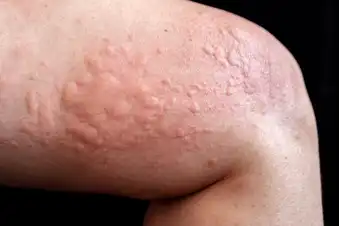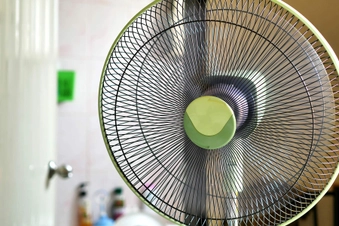Strategies to Manage the Itch of Chronic Spontaneous Urticaria

Talk With Your Doctor
Many things can trigger chronic spontaneous urticaria (CSU), the name for itchy hives that happen almost every day for 6 weeks or more. It’s not always clear what causes CSU. But sometimes, a medication or medical condition can be behind it. Your doctor can check to see if this is happening with you and find out if they need to change a prescription or treat another health issue.

Take Your Medicine as Prescribed
For most people who have CSU, doctors can’t find a specific cause. But they can prescribe an antihistamine to help with the itching. If that isn’t enough, they might recommend steroids or a drug that affects your immune system, called cyclosporine. But it’s best to take those for only short periods of time, because they can cause serious side effects. It’s important to follow your doctor’s directions carefully.

Stay Cool
Heat can make CSU worse. It might help to keep your body temperature on the lower side. Try choosing clothes made of breathable materials like cotton. Use a fan to keep from sweating or getting overheated. Or wrap a few ice cubes in a washcloth and press it against itchy skin.

Pamper Your Skin
Soothe your skin with a bath, and put on a fragrance-free moisturizing lotion several times a day. Be careful not to use harsh soaps that can make skin dry or irritated. Resist the urge to scratch. That can actually make the itch bother you even more.

Take Care With What You Wear
Tight clothes that rub your skin, or even the pressure of a purse strap on your shoulder, can make the itch of hives worse. It’s best to wear loose-fitting clothing and try to keep anything from pressing against the affected area for any length of time.

Check Your Plate
Some studies show that diet changes may help manage hives. Foods that might make CSU worse include those with additives like colorings or preservatives, gluten, or histamine. To cut down on histamine, limit things like tuna, pork, chicken, mayonnaise, yogurt, cheese, ketchup, wine, and beer.

Manage Stress
As with many other conditions, stress can make the effects of CSU worse. To keep itching at bay, find a healthy way to stay calm that works for you. You might try getting regular activity or practicing mindfulness, such as meditation or breathing exercises.

Keep a Journal
It may not pinpoint the exact cause of your hives, but a diary where you track flare-ups can shed some light on the things that trigger them. You’ll want to pay close attention to things like what you eat, what you wear, medicines you take, whether you feel stressed, and temperature changes.
Show Sources
IMAGES PROVIDED BY:
- HengDao / Getty Images
- GIPhotoStock / Getty Images
- Pholayut Boonyoo / EyeEm / Getty Images
- Ed Bock / Getty Images
- Drazen_ / Getty Images
- (Clockwise from top left) Victority / Getty Images, loooby / Getty Images, LauriPatterson / Getty Images, fortyforks / Getty Images
- Svetlana Braun / Thinkstock
- diovp / Getty Images
SOURCES:
American Academy of Dermatology: “10 Ways to Get Relief From Chronic Hives.”
American College of Allergy, Asthma & Immunology: “Hives.”
American Osteopathic College of Dermatology: “Urticaria.”
Annals of Dermatology: "A Histamine-Free Diet Is Helpful for Treatment of Adult Patients with Chronic Spontaneous Urticaria."
Mayo Clinic: “Chronic Hives,” “Mindfulness Exercises.”
World Allergy Organization: “Dietary Modifications for Chronic Urticaria.”